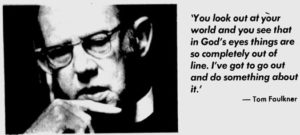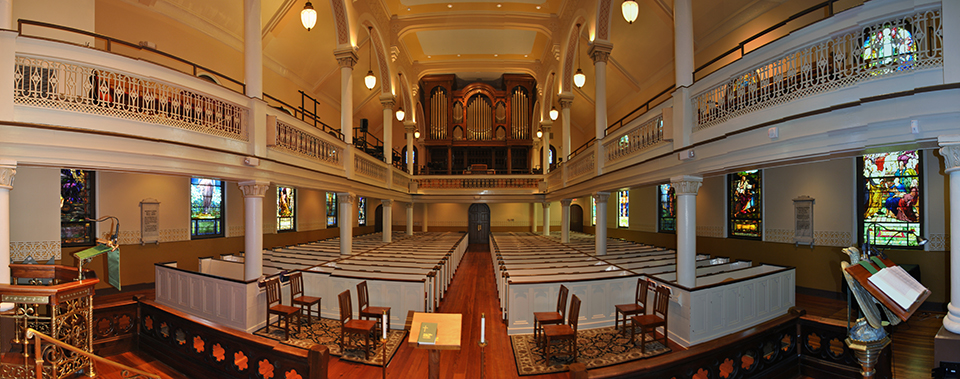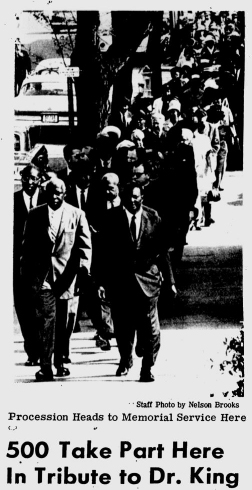St. George’s History comprises individual articles, documents and collections around the 300 year history of St. George’s Episcopal Church, located in Fredericksburg Virginia. This site is unrelated to St. George's main website.
Supplementing them are a category-based search, a content index and a timeline. We have two tour documents - a building summary and a 15 minute walking tour you can take in the church.
If this is your first visit, check out the 2 tours - building summary and a 15 minute walking tour.
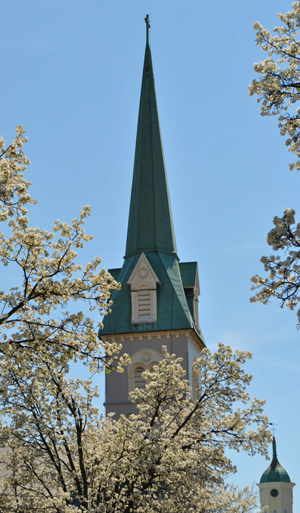
Recent articles
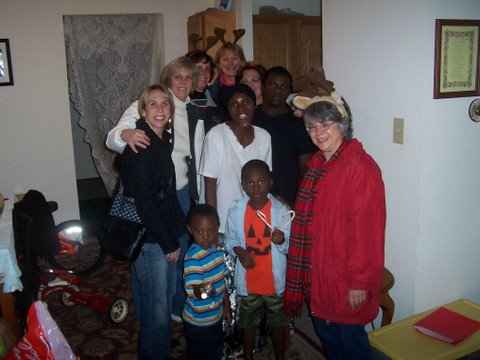
Beginnings of Interfaith: Refugees at St. George’s 2006-2012
From 2005-2010, 500 refugees came to Fredericksburg from Africa resettled by the Catholic Diocese of Arlington.;Gay Rahn has said this was the origin of the interfaith emphasis a decade later
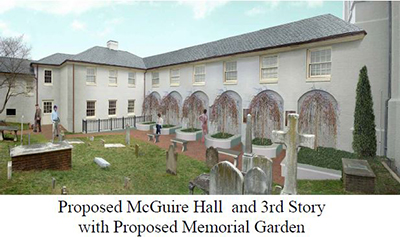
The Columbarium Project
St. George’s tried 3 times to create a columbarium from 1982 to 2010 and failed. The image above was the last effort in 2008. However, the ultimate idea to resume burying parishioners at the church did resume in the form of a scatter garden.
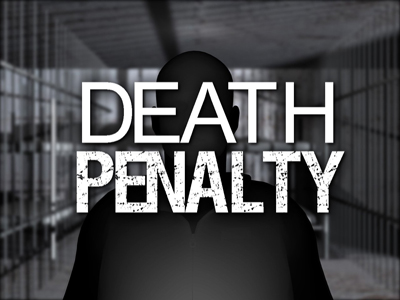
St. George’s Debates the Death Penalty, 2001
In the May 2001 newsletter Charles Sydnor wrote the following statement on the death penalty Dear Friends in Christ, The vestry and I have been discussing possible responses to a call for a moratorium on the death penalty in Virginia. We believe our mandate to have such discussions comes from our Baptismal Covenant in which … Read more

Global Candlelight Vigil, March 16, 2003
A vigil for world peace at the outset of the war with Iran in 2003 to unseat Saddam Hussein.
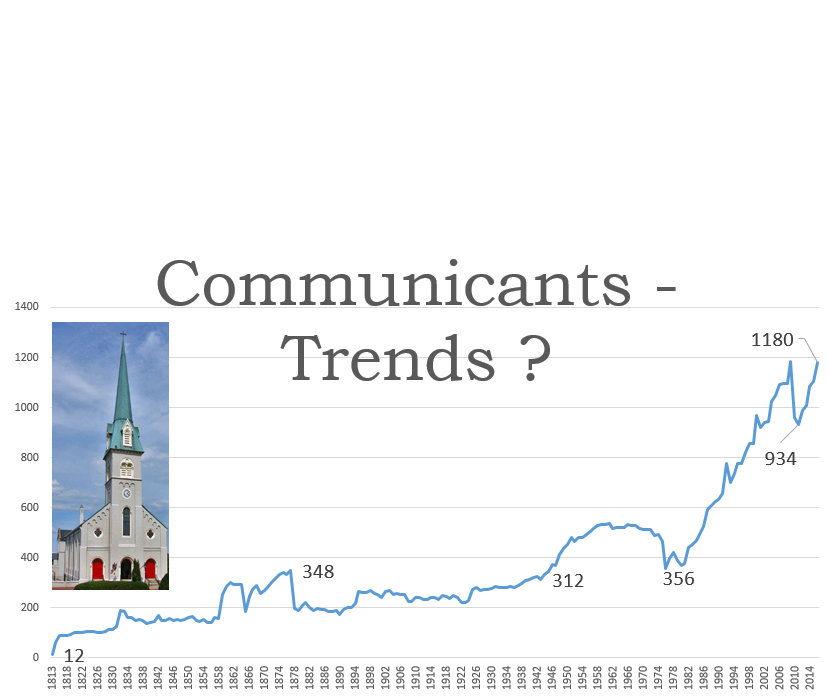
Communicants at St. George’s
Carrol Quenzel lists the number of communicants at St. George’s from 1813-1951 in Appendix B in his history of St. George’s. This article brings the numbers current and considers 8 different periods of communicant growth or decline during St. George’s history.
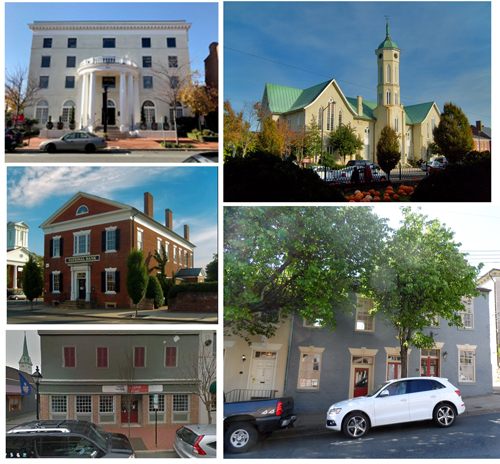
“If We Only Had the Space!” – Overcrowding at St. George’s
In 2017, was the space something new? No, it was brought up 30 years earlier in 1986. The discussion intensified in the Dannals years with the renovation and into the Hensley years.

LGBT at St. George’s
Charles Sydnor added welcoming persons regardless of sexual orientation in 1997 and Jim Dannals participated in administering same sex blessings. Both of them would credit Tom Faulkner with passing on a rich legacy of social activism.
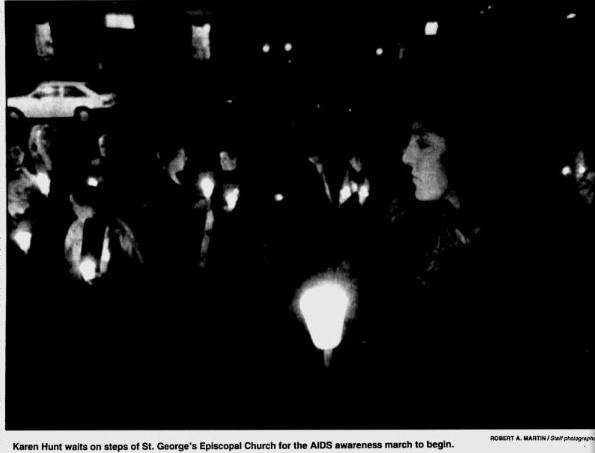
World Aids Day at St. George’s, Dec. 1, 1992
St. George’s participates in World Aids Day in Dec., 1992 in a march and service at St. George’s. Charles Sydnor describes how it took place.
1. Carrol Quenzel's History of St. George's
Quenzel's 1951 history is still the standard for the church. He was a librarian for Mary Washington College as well as being active at St. George's, helping to create the St. Georgian newsletter as well as a part of the Vestry. We have the entire book online which was published by St. George's
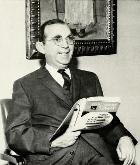
2. The Three Churches of St. George's - Barbara Willis
Barbara Willis was a local historian and writer and long time St. Georgian with her husband Mac. This paper is a detailed summary of the evolution of St. George's church from its wooden colonial church to the impressive 1849 brick building we have today.
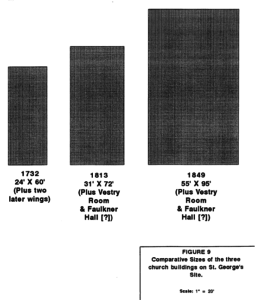
The Civil War may be the most popular historic topic in all of our history. The church served in 3 capacities - as a fortress, center of revival and as a hospital. We have a 9 part series on our role and relationship to Fredericksburg.

McGuire served all 3 churches over the course of 45 years. He is probably the most influential of all our rectors in all phases of ministry from preaching, teaching, and outreach. Trip Wiggins, our archivist, wrote this for a Sunday school class and has been teaching classes for years
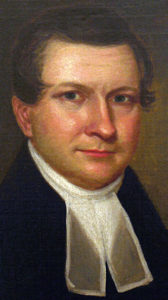
5. Charles Syndor on Social Policy
Charles Sydnor served St. George's from 1972-2003 and was responsible for furthering Thomas Faulkner's outreach ministries and creating new ones. This paper he wrote in 2009 was for an adult forum in that year.
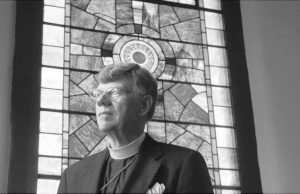
6. Tom Faulkner confronts the Vestry on race
Faulkner served St. George's for 30 years from 1946-1976. During these years racial policies were paramount, especially 1954, in the year of Brown vs. Board of Education, Faulkner was challenged by the Vestry on the role of Blacks in our service. He was able to move St. George's toward racial justice that other rectors would further
